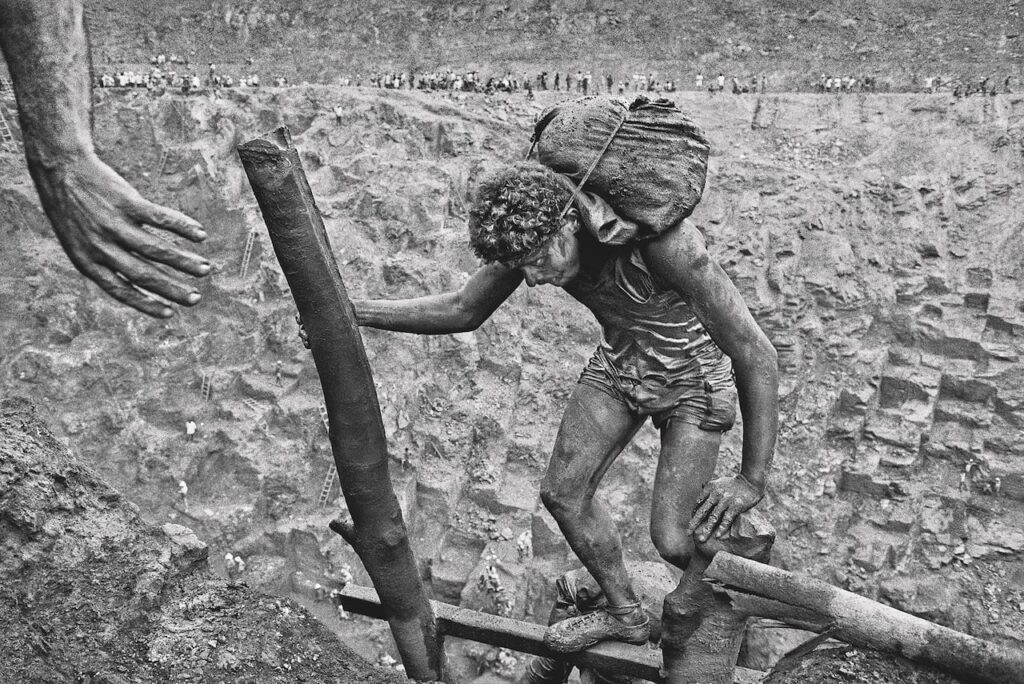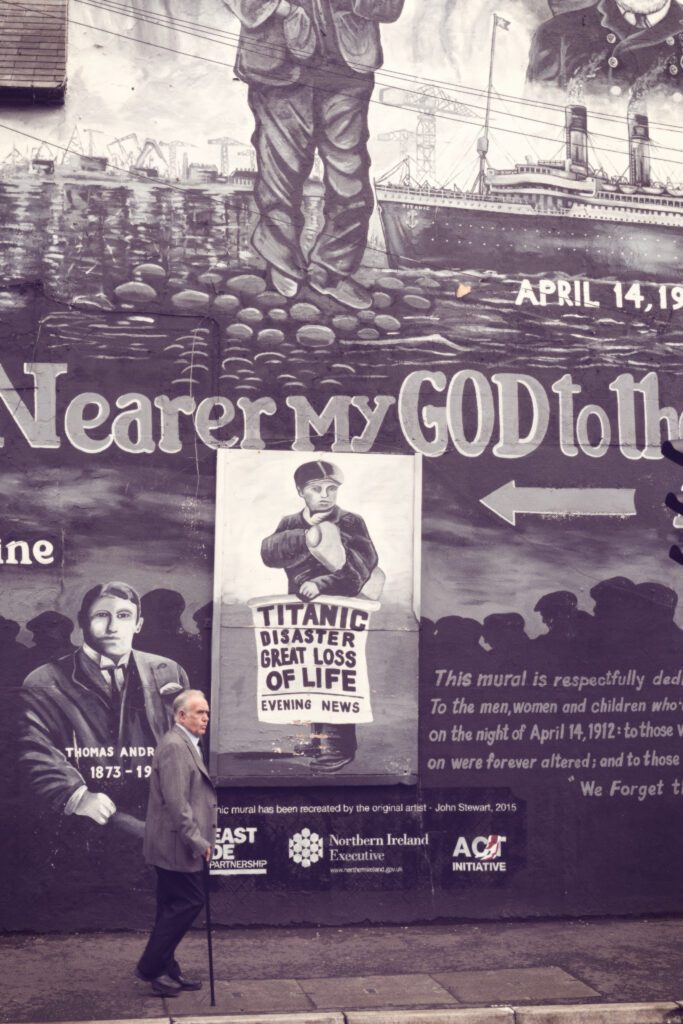Finding interesting documentary photography topics can be a challenge. This article will help photographers to generate ideas and tell powerful stories.

Generating Interesting Documentary Photography Topics
In the first article in this series about documentary photography we discussed how photography can be a powerful medium for capturing and telling the stories of the world around us.
Whether you’re a professional photographer or an amateur with a passion for storytelling, generating documentary photography topic ideas can be a challenge. If you have sat in front of your computer staring at a blank screen or faced the dreaded blank page, fear not, you are not alone.
In this blog post, we’ll explore some of the key strategies and techniques for coming up with new and impactful project ideas. We will highlight broad ideas for you to research, hopefully we can make that research interesting, and who knows, you might even find it fun.
I will confess, I do find research fun. My university professor constantly reminded me that “you are a photographer, not a social scientist.” He was wrong of course, Bachelors Degree was in social sciences. However, the point that was being made is that photography is a visual medium, so visual research is incredibly important.
Of course, there isn’t much point in carrying out research if you don’t already have some ideas. So, how do we find the inspiration for a project? Read on as we discuss ways to find interesting documentary photography topics.
Start by understanding your own community
You can find many great documentary photography ideas right there on your own doorstep. Don’t underestimate the importance of understanding your community and the unique stories that it has to tell. It’s easy to assume that local stories are of no interest to anyone outside the local area.
That just isn’t true, but you do have to be creative to make it work. Take the time to get to know the people, places, and issues that are important to your community, and look for ways to use your photography to bring those stories to life.
Think about how local issues are reflected in wider society. As an example, I used to live in Poole Dorset. Poole is home to Sandbanks, one of the most expensive places in the world to live. It is certainly a beautiful place, but just a few miles away, the town centre is a place of empty shops.
Things are so bad in Poole that McDonalds, Burger King, and Subway have abandoned the town centre. It’s interesting to contrast homeless people living on the streets and empty shops with the extreme wealth a couple of miles down the road.
Read the local media, browse local Facebook groups, and use your eyes to identify topics that people are interested or concerned about. These things can be a rich source of documentary photography project ideas.
Use Personal Experiences and Emotions to Inspire Documentary Photography Projects
Don’t ignore your own personal experiences and emotions. You are quite literally a walking talking encyclopedia of possible documentary photography topics.
Think about events or experiences that have had a profound impact on your life, or a deep-seated emotion that you’re trying to explore, using your own life as a source of inspiration can be a powerful way to create meaningful and impactful photography.
Of course, you will still need to research how others have experienced similar things, how they dealt with them, and how they feel about them. Explore how your experiences reflect lived experience in wider society and research how others have presented similar issues in a visual way. Will the story be best told using portrait, street photography, or even mixed media images?
The Role of Research and Planning in the Idea Generation Process
Research and planning are essential elements of the idea-generation process for any type of photography, but they are especially important when it comes to finding documentary photography topics that are worthy of exploration.
Take the time to research the subjects and issues that you’re interested in exploring, and plan out your projects in detail before you begin shooting. This will help you to stay focused and on track, and ensure that your photography is as impactful as possible.
It’s always worth exploring whether an experienced photographer has already completed a project on the documentary photography topics that you are interested in. The Magnum website is a great resource for this kind of visual research as many of the world’s top documentary photographers are on that site.
You don’t need to dismiss your topic idea because a famous photographer has already covered the topic. Use their work as inspiration and think about how you could add a unique angle or a more modern interpretation of the project.
Publications like the British Journal of Photography or National Geographic are great resources for helping to generate photography project ideas. They also keep you informed about trends in contemporary photography.
Approaching Sensitive or Controversial Documentary Photography Topics
Documentary photography often deals with sensitive or controversial subjects, and it’s important to approach these types of projects with care and consideration. Whatever your approach to documentary photography topics, people will be involved at some point in the process.
Those people may be participants in your project or those who view your work when it is complete. Obviously those people have their own life experiences and those experiences may have been extremely traumatic for them.
You should always treat people with dignity and respect their views, even if you don’t agree with them. If your project deals with subjects that are likely to trigger traumatic memories for participants it is a good idea to be in possession of information on where your participants can find help and support.
Make potential participants aware of the full details of your photo project and allow them to withdraw for any reason. Behaving in an ethical manner when you are photographing sensitive documentary photography topics is non-negotiable. We will discuss the ethics of documentary photography in the next article in the series.
Diversity and representation are important considerations in any type of photography, but they are especially crucial when it comes to a documentary project. Make sure that your projects reflect the diverse perspectives and experiences of the people and communities you are part of.
If you strive to be inclusive and representative in your work project ideas will present themselves as a natural part of the research process. This not only helps to ensure that your photography is more accurate and authentic, but it also helps to promote understanding and empathy among your audience.
The Role of Self-Reflection When Developing Documentary Topic Ideas
Self-reflection and introspection are important aspects of the idea-generation process for any type of photography, but they are especially crucial when it comes to documentary photography. Take the time to reflect on your own motivations and reasons for pursuing photography, and consider how your own experiences and emotions can inform your work.
When reading or viewing other people’s work think about how you might present a topic in a different way. Consider how the topic makes you feel. Do the photos make you laugh, sad, or angry? Reflecting on those feelings can help you to decide your project approach and how the final images should look.
This reflective approach can help you to generate new and meaningful ideas for documentary photography projects. It’s also important to reflect on your practice as the project develops. Are you on track with your plan? Do you need to change your approach? What have you learned as you work your way through the project?
Does new knowledge indicate that you should allow the project to move organically in a different direction? Has the experience you have gained as you navigate your project generated ideas for future projects?
I make comprehensive notes as I work through a project and always find that new project ideas present themselves as I do so. It’s important to be mindful as you work as it can help you to come up with good ideas for future documentary projects.
Collaborate With Organisations or Other Artists
Do you have a colleague that you could collaborate with on a documentary project? What about a more experienced documentary photographer who could mentor you? Few things work better for generating project ideas than being able to bounce ideas off someone who shares your passion for photography.
Collaborating with organisations with an interest in the project niche can be a great way to generate new ideas for documentary photography projects. Working with a local NGO to document the work they do can help you to see things from a new perspective and bring new project ideas to the table. Collaborating in these ways might also help to open up potential opportunities for funding your project.
Current Events and Social Issues as Documentary Photography Topics
Current events and social issues are a constant source of inspiration for documentary photography projects. From political upheavals and natural disasters to social movements and cultural shifts, there are countless ways to use your photography to shed light on the issues and events that are shaping the world around us.
Be aware of what’s happening in the world, and consider how your photography can contribute to the conversation. Watch news, current affairs, and cultural programs on television and identify the topics that are making headlines. Use social media to identify the topics that are trending locally, nationally, and internationally.
Perhaps most importantly, think about the issues that you are passionate about. If you are emotionally invested in a project you will be more excited by it and you will be willing to work harder to achieve the end results that you envisage when you begin.
Documentary photography projects can take months, or even years, to complete. You are less likely to become bored or demotivated if you are passionate about your topic.
Ted talks are a great resource for finding potential documentary photography topics.
20 Documentary Photography Topics You Could Develop
- Street life and culture in major cities
- The effects of gentrification on communities
- Homelessness and poverty
- Environmental conservation and activism
- Migrant and refugee communities
- Aging and elderly care
- Mental health and well-being
- Labor rights and worker conditions
- The criminal justice system
- Education and access to opportunities
- Rural communities and agriculture
- Urban renewal and redevelopment
- Indigenous cultures and rights
- Healthcare access and disparities
- LGBTQ+ communities and rights
- Women’s rights and empowerment
- Technology and its impact on society
- The effects of climate change on communities
- Religious communities and practices
- Disabilities and accessibility issues
Conclusion
In conclusion, finding great documentary photography topics can be a challenging but rewarding process. Whether you’re just starting out or you’re a seasoned professional, the key is to be open to new ideas and to approach your work with a sense of curiosity and exploration.
Remember to understand your community, use personal experiences and emotions, research and plan, approach sensitive subjects with care and respect, collaborate, use technology creatively, use visual storytelling, promote diversity and representation, reflect on your work, and be aware of current events and social issues. With the right approach, you can create powerful, impactful, and meaningful documentary photography.
In our next article in the documentary photography series we will discuss the ethics of documentary photography and how to avoid potential pitfalls.



